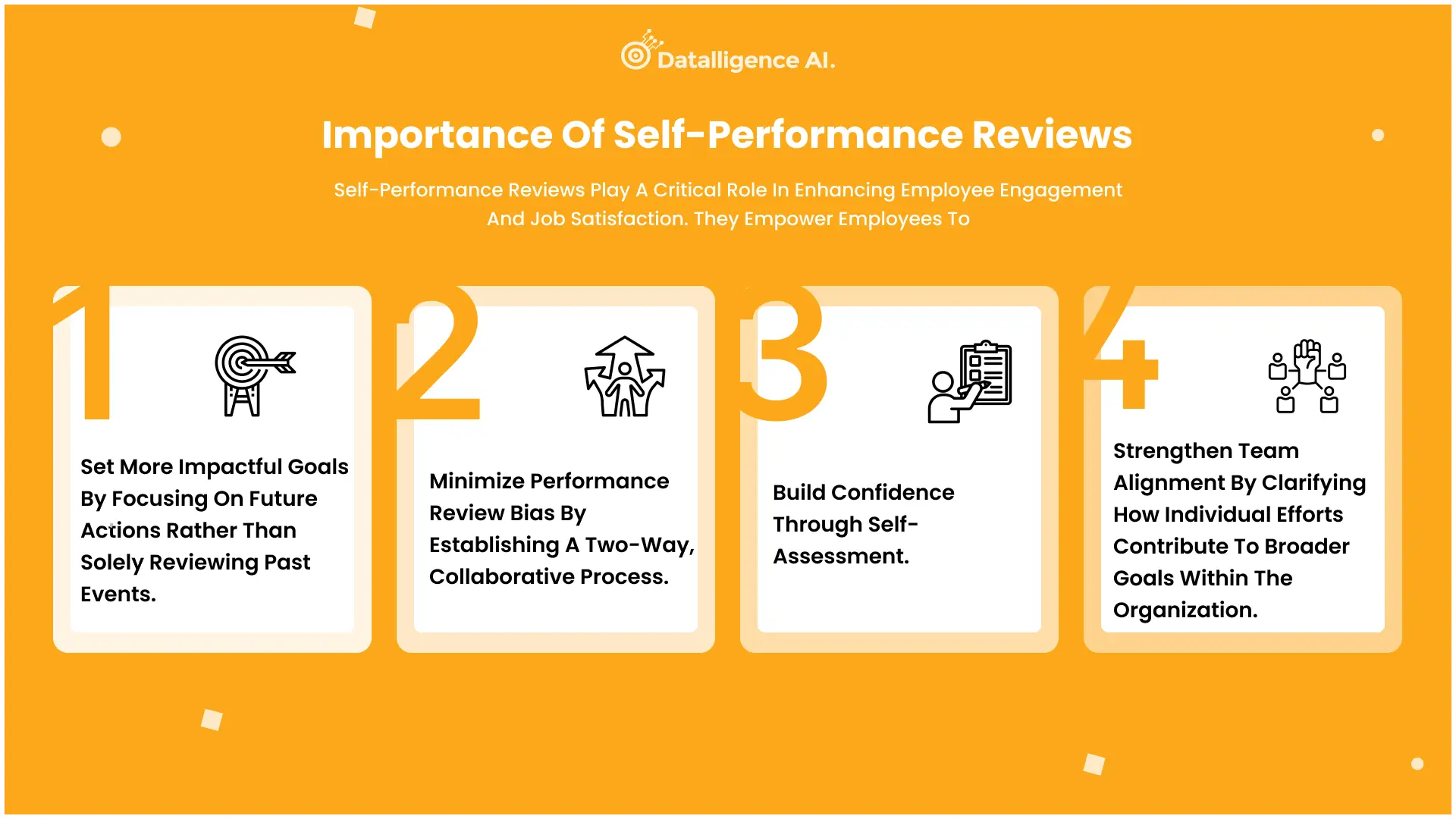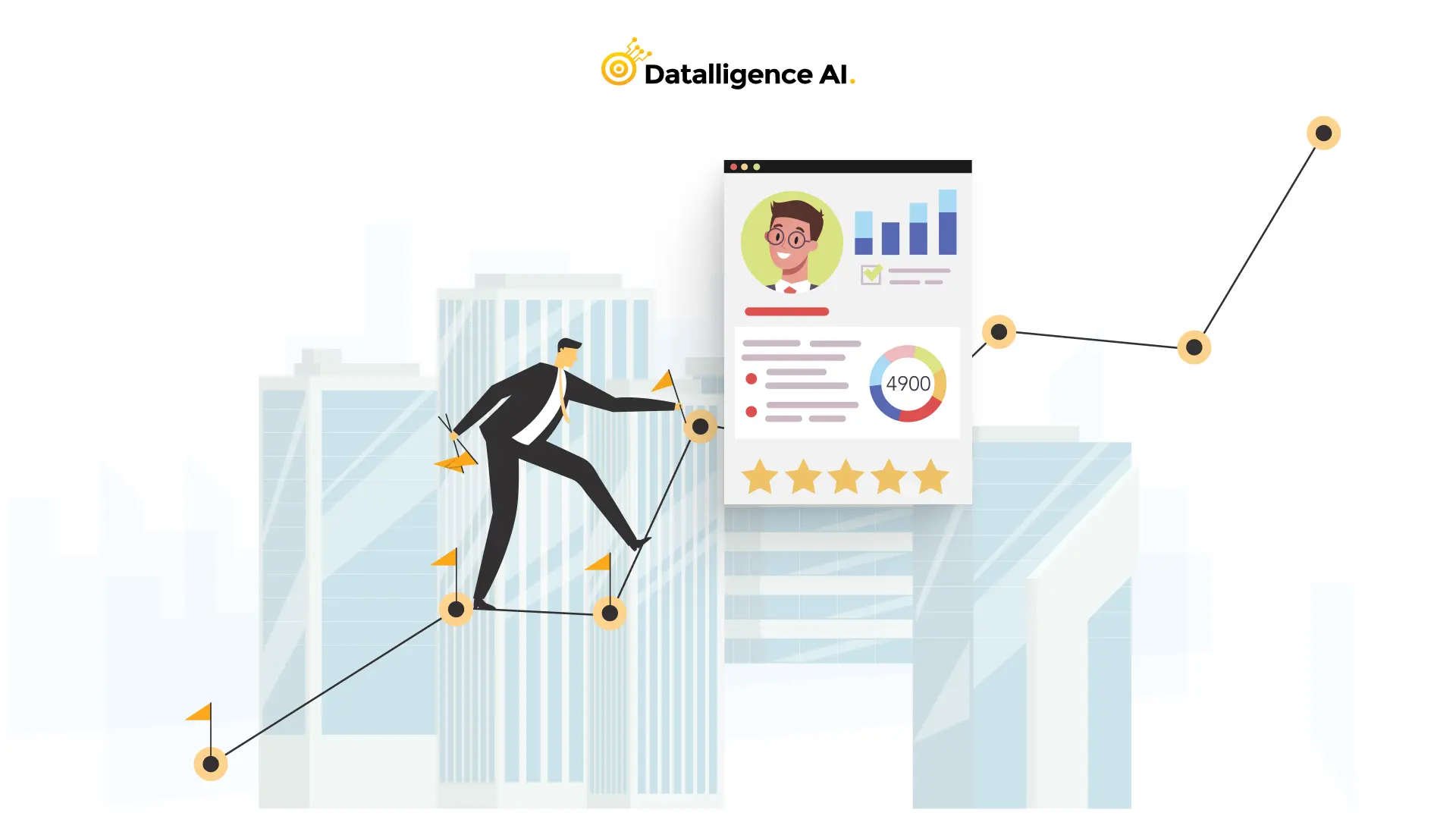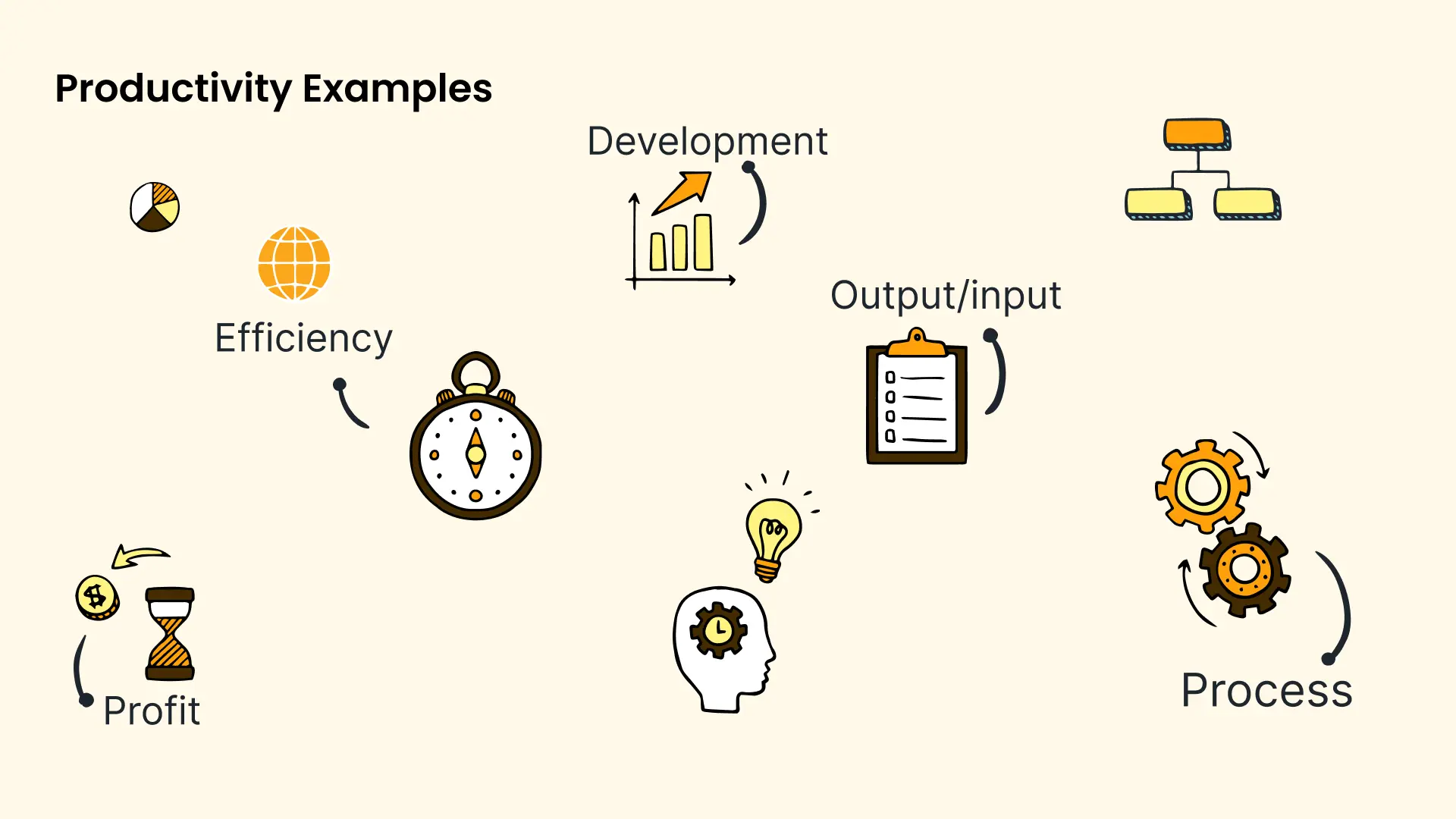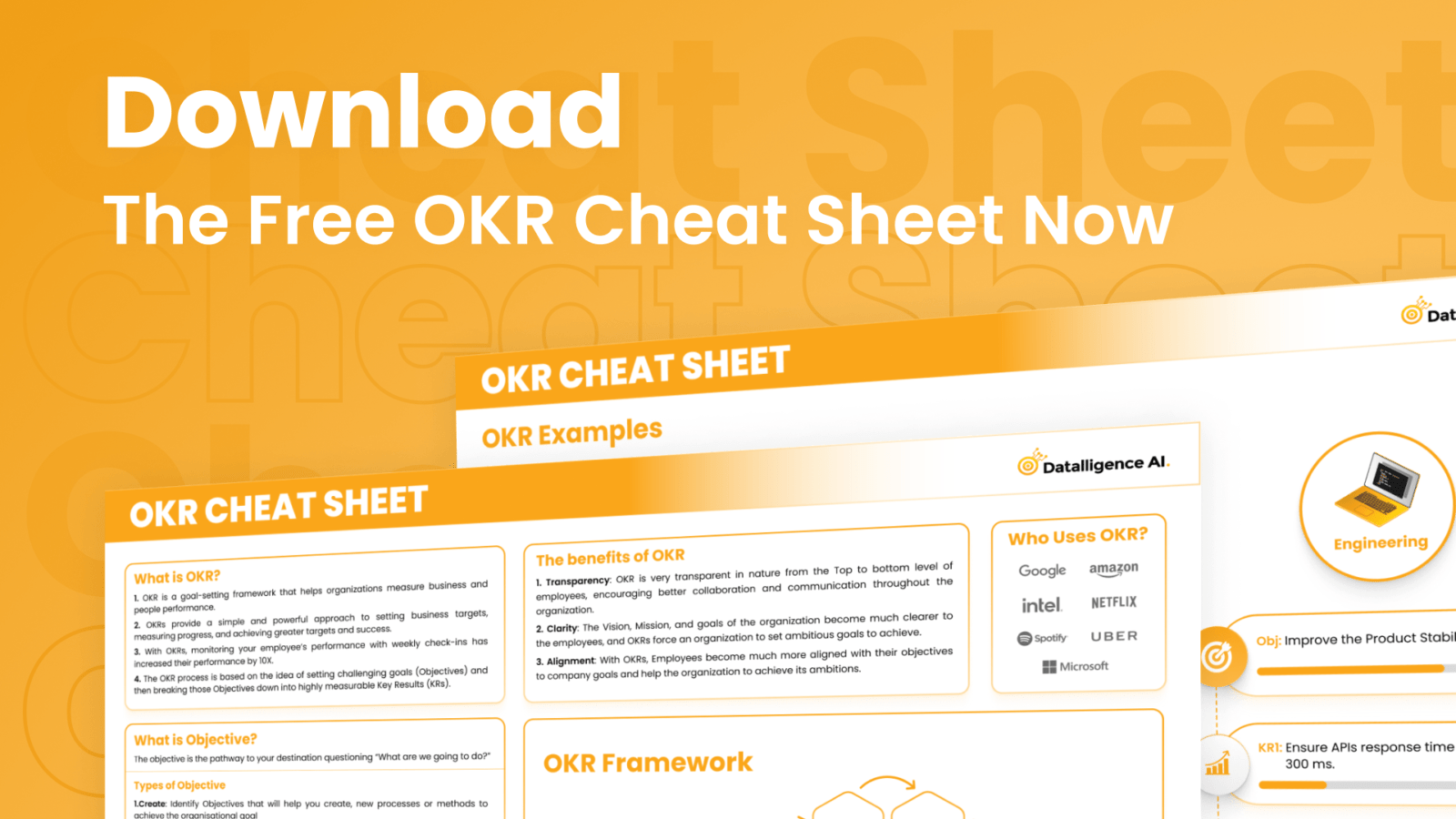Did you know that over 70% of high-performing companies now incorporate self-performance reviews as part of their performance management process? And for a good reason—self-reviews are proving to be far more than a simple formality. They’re a game-changer that empowers employees to reflect on their achievements, set growth goals, and make their unique value known within their organizations.
In this article, we’ll walk through over 50 examples of self-performance reviews that can help take your appraisals to the next level. Covering key areas like job performance, communication, innovation, and customer experience, these examples will guide you in crafting self-evaluations that effectively highlight your contributions and open doors to career advancement and personal development.
Self-performance reviews are all about taking ownership of your professional journey. They foster self-awareness, strengthen communication with managers, and fuel team engagement. As more companies move toward employee-centered performance management, these self-evaluations are emerging as essential tools for both personal and organizational growth. Let’s dive into the transformative potential of self-reviews and start building a path to success together!
What Does a Self-Performance Review Really Mean?
A self-performance review is an employee-driven evaluation that allows individuals to assess their own work performance. This process gives employees a chance to reflect on their achievements, identify challenges, and evaluate personal growth over a set period. By encouraging self-reflection, self-performance reviews help employees clearly define their professional development goals and career aspirations.
Why Self-Performance Reviews Matter

Incorporating self-performance reviews within a comprehensive Performance Management Software not only enhances the process but also fosters a culture of continuous improvement and growth
How to Reflect and Write an Effective Self-Performance Review?
Writing a self-performance review for appraisals can be a powerful opportunity to reflect on your growth and contributions. Start by listing key accomplishments, focusing on how your efforts impacted the team or company goals. Be specific—mention the skills you used, projects you completed, and any positive feedback you’ve received. Balance these achievements by acknowledging areas for improvement, showing that you’re proactive about personal development. Finally, set a few goals for the future that align with the company’s objectives, demonstrating a commitment to continued progress. This approach not only showcases your value but also sets a constructive tone for feedback discussions.
Key Components of an Effective Self-Review
By engaging in this process, employees can better understand their role within the organization and take proactive steps toward their professional growth.
Job Performance Examples

Self-evaluation plays a crucial role in professional growth and development. It allows employees to reflect on their performance, identify strengths, and pinpoint areas for improvement. Here are some examples of self-evaluation statements related to job performance:
Productivity Examples

- I consistently met or exceeded my weekly goals and deadlines.
- I prioritized my tasks effectively and efficiently, which allowed me to complete them on time.
- I remained organized and managed my time effectively to meet project deadlines.
- I was able to prioritize tasks to ensure the team met project deadlines effectively.
Teamwork Examples

- I effectively communicated with team members to ensure everyone was on the same page.
- I actively listened to team members’ ideas and incorporated them into our project.
- I took on additional responsibilities to support the team’s goals.
- I provided constructive feedback to team members to help improve their work.
- I recognized team members’ strengths and delegated tasks accordingly.
Goal Achievement Examples

- I successfully coordinated a strategic data analysis initiative that improved team efficiency by 15%.
- I took initiative in identifying areas where the team could improve and suggested solutions.
- I demonstrated a commitment to the team’s success by going above and beyond when needed.
- I remained focused on the team’s goals and worked collaboratively to achieve them.
These self-performance review examples showcase various aspects of job performance, including productivity, teamwork, and goal achievement. By incorporating such statements in their self-evaluations, employees can effectively highlight their contributions and value to the organization.
Communication Skills Examples

Effective communication is crucial in the workplace, fostering healthy relationships and a positive work environment. Here are some self-evaluation examples for communication skills:
Interpersonal Communication Examples
- I actively listen and make an effort to understand others’ perspectives.
- I adapt my communication style to different audiences and situations.
- I use appropriate language and tone for various contexts.
- I am skilled at using nonverbal cues to convey messages effectively.
- I am comfortable with conflict resolution and can communicate effectively in challenging situations.
Written Communication Examples
- I am a clear and concise writer, producing well-written emails and reports.
- I consistently communicate information accurately and effectively in writing.
- I have improved my written communication skills to enhance clarity in emails and reports.
- I proactively seek feedback to improve my written communication.
Presentation Skills Examples
- I am confident and articulate when speaking in public settings.
- I can deliver presentations with ease and confidence.
- I effectively use visual aids to enhance my presentations.
- I am skilled at using storytelling to convey complex ideas engagingly.
These examples demonstrate various aspects of communication skills. Employees can use them to highlight their strengths and identify areas for improvement in their self-performance reviews.
Innovation and Creativity Examples

Innovation and creativity are essential skills in today’s rapidly evolving workplace. Employees who demonstrate these qualities contribute significantly to an organization’s growth and success. Here are some self-evaluation examples that showcase innovation and creativity:
Problem-Solving Examples
- I consistently generate new and innovative ideas to solve problems.
- I can see problems from different angles and come up with unique solutions.
- I can think outside the box and develop creative solutions.
- I generate multiple solutions to a problem and evaluate them objectively.
Process Improvement Examples
- I actively seek ways to improve processes and procedures.
- I create a culture of innovation and continuous improvement.
- I adapt quickly to changing situations and develop new strategies.
- I stay up-to-date with industry trends and best practices to drive innovation.
New Ideas Implementation Examples
- I identify opportunities for innovation and take action to pursue them.
- I collaborate with others to generate new ideas and approaches.
- I balance creativity with practicality and feasibility when implementing new ideas.
- I measure and track the impact of my innovative ideas and initiatives.
These examples demonstrate how employees can articulate their innovative thinking and creative problem-solving skills during self-performance reviews. By highlighting these abilities, individuals can showcase their value to the organization and contribute to its overall success.
Customer Experience Examples
Customer experience is a crucial aspect of any business. Here are some self-evaluation examples that focus on different aspects of customer service:
Customer Satisfaction Examples
- I have consistently demonstrated a strong commitment to providing excellent customer service, always going above and beyond to meet the needs of our customers.
- I have effectively communicated with customers, building strong relationships and gaining their trust and loyalty.
- I deeply understand our customers’ needs and preferences and have effectively used this knowledge to enhance the customer experience.
Conflict Resolution Examples
- I sometimes struggle to manage customer complaints and conflicts, leading to dissatisfaction and negative experiences. I plan to develop my conflict resolution skills and seek additional training in this area.
- I have been working on remaining calm and professional in difficult situations, displaying empathy and understanding towards customers.
- I am improving my ability to handle customer complaints and feedback professionally, managing customer expectations effectively.
Service Quality Examples
- I have consistently met or exceeded performance metrics, resolving customer issues promptly.
- I am developing my ability to anticipate customer needs and provide proactive solutions.
- I have sometimes struggled to effectively manage my workload and balance competing priorities, leading to longer response times. I plan to work on better prioritizing my tasks and seeking additional support when needed.
These self-evaluation examples demonstrate a commitment to improving customer experience and highlight areas for growth in customer service skills.
Performance Improvement Examples
Self-evaluation plays a crucial role in professional growth and development. By identifying areas for improvement, employees can take proactive steps towards enhancing their performance. Here are some examples of self-evaluation statements focused on performance improvement:
Skill Development Examples
- I need to allocate more time for continuous learning and professional development to stay updated with industry trends.
- While I attend training sessions, I sometimes struggle to apply the new skills effectively. I aim to practice and integrate these skills more consistently.
- I plan to improve my project management skills to bring my creative ideas to fruition.
Time Management Examples
- I occasionally struggle with procrastination on less enjoyable tasks. I plan to implement better strategies to tackle these tasks promptly.”
- I need to improve my ability to estimate the time required for complex projects to avoid last-minute rushes.
- I aim to enhance my stress management skills to maintain resilience in high-pressure situations.
Adaptability Examples
- While I handle most changes well, I occasionally find it challenging to adapt to significant shifts in project scope. I am working on improving my adaptability in such cases.
- I sometimes find it difficult to adjust to sudden changes in project scope. I plan to improve my flexibility and adaptability in such situations.
- I need to develop better coping strategies for handling unexpected challenges to maintain my productivity.
These self-performance review examples demonstrate a commitment to continuous improvement and professional growth.
Conclusion
Self-performance reviews and self-evaluation examples play a crucial role in professional growth. These tools empower employees to reflect on their achievements, pinpoint areas for improvement, and set meaningful goals. By incorporating specific examples across various domains like job performance, communication, innovation, and customer experience, individuals can provide a comprehensive picture of their contributions and potential.
To further enhance your self-evaluation process, Datalligence offers tailored solutions to streamline and optimize performance reviews. Our platform helps you craft insightful self-assessments, track progress, and align personal goals with organizational objectives. Ready to take your self-evaluation to the next level? Try out Datalligence’s performance review tools and unlock your full potential.
FAQs
What does a self-review look like in a performance appraisal?
A self-review in a performance appraisal might include statements like: “I am proactive in collaborating with colleagues to gain new insights and stay abreast of the latest trends and developments in my field. I have clear career goals and have taken specific steps to achieve them.”
How should I identify areas for improvement in my self-appraisal?
When writing about areas of improvement in a self-appraisal, consider including aspects such as communication skills, time management, adaptability, critical thinking, professional networking, collaboration, leadership abilities, and conflict resolution skills.
How can I effectively write self-appraisal comments?
In your self-appraisal comments, you might mention your reliability, such as never failing to meet commitments and keeping stakeholders informed of any challenges. Highlight achievements like completing a high percentage of tasks by their deadlines, avoiding procrastination, and demonstrating strong time management by effectively organizing meetings with clients and team members.
What are some examples of what could have been better in a self-performance review?
In reflecting on what could have been better, you might note areas such as a need to better understand and align with the company’s values and mission, improving the balance between personal and company values to avoid conflicts, and recognizing the need to enhance communication skills.











